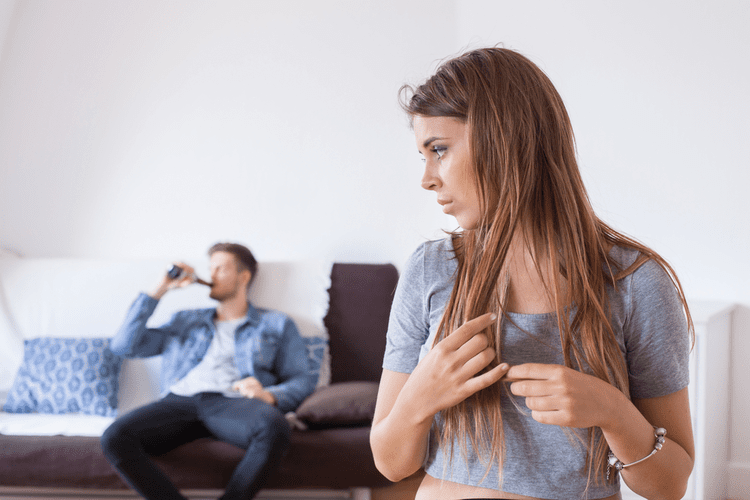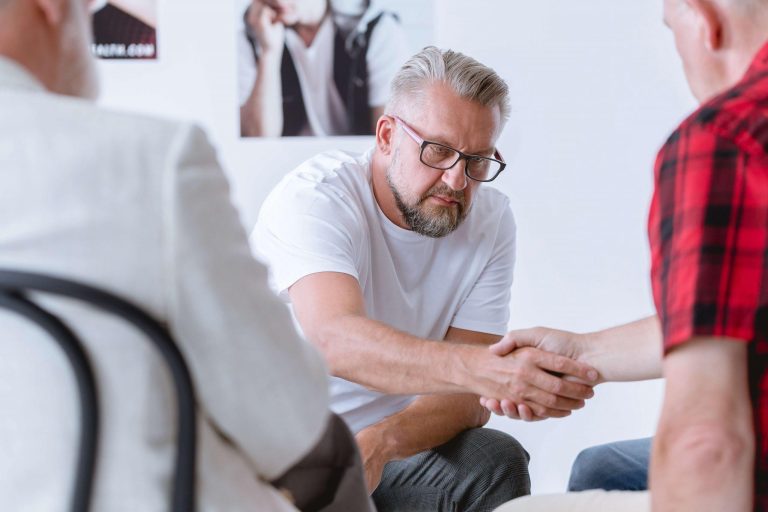The task force has not yet suggested how often this screening should happen. In an attempt to alleviate the worsening anxiety and discomfort, individuals might turn back to alcohol, creating a dependence loop. For some people, insomnia caused by stopping drinking can be challenging. It’s really important to resist any urge to start drinking again ‘to help get off to sleep’.

Alcohol and Panic Attacks: How Drinking Causes Anxiety
Alcohol poisoning is a serious and sometimes deadly result of drinking large amounts of alcohol in a short period of time. Drinking too much too quickly can affect breathing, heart rate, body temperature and gag reflex. Struggling with anxiety and alcohol abuse can feel overwhelming, and it may be confusing to know where to start. Seeking addiction treatment at an inpatient or outpatient facility can provide the therapeutic intervention and support needed to simultaneously treat anxiety and alcohol addiction.
Can alcohol abuse cause OCD?
Here, we briefly describe the causes and effects of co-occurrence, the mental health disorders that commonly co-occur with AUD, and the treatment implications for primary care and other healthcare professionals. We start with a visual model of care that indicates when to consider a referral. Our Drinking Check can help you identify if the amount you drink could be putting your health at serious risk. We use a tool developed by the World Health Organisation (WHO), called ‘AUDIT’, that is used internationally by medical professionals to check for harm that can be caused by alcohol use disorders, including dependence. Psychiatrists are doctors who have specialized training in diagnosing and treating complex mental health conditions through medication management. If you are experiencing symptoms of a mental health condition such as depression, anxiety, bipolar disorder, PTSD, or similar, a psychiatrist may be a good place does alcohol give you anxiety to start.

Tips to change your relationship with alcohol
According to some animal research, those who drink alcohol in their youth may be more prone to anxiety in adulthood, which might suggest a causal relationship. Mixing other drugs with alcohol can also increase the risk of anxiety the next day. This is especially true for drugs that can cause anxiety when you’re coming down, such as MDMA, ketamine or cocaine. Generally, the more you drink the more intense your hangover symptoms, including anxiety, might be. And if you’re experiencing general anxiety or taking anti-depressant medication, try to avoid or limit alcohol. Make sure to check with your doctor Sober living house or a pharmacist if any medications you’re taking interact with alcohol.
He then had additional training in Addiction Psychiatry through his fellowship at the University of Texas Southwestern Medical Center. After completing training, Dr. Lin has worked as an Addiction Psychiatrist and Director of Adult Services in the Trauma and Resilience Center (TRC) at the University of Texas Health Science Center at Houston (UTHealth). He specialized in treating patients with a history of depression, anxiety, trauma, and substance use disorders. Dr. Lin has held an academic appointment at UTHealth, and he has spent his professional career supervising and teaching medical students and psychiatry residents. Waking up after a night of heavy drinking can sometimes come with a fuzzy memory or uncertainty about what exactly happened when you were under the influence. “Blacking out,” or experiencing mild to complete memory loss after heavy drinking, can also occur.
Alcohol dependence has been shown to be genetically influenced and to run in families (Schuckit and Smith 1996). The disorder often develops when individuals are in either their twenties or thirties. Similarly, major anxiety disorders usually are apparent before age 30, and although major depressive disorders often have a later onset, they too are frequently observed before age 30. While it might be tempting to turn to alcohol to manage feelings of anxiety, it can be a slippery slope that worsens anxiety problems and increases your risk of developing an alcohol use disorder. Instead of alcohol, consider talking to a mental health professional about effective anxiety management options, which may include psychotherapy and medication. In addition, it can worsen anxiety because it can lead to the development of new anxiety disorders or additional mental health disorders.
- Indeed, several disorders are more likely to be observed in COA’s than in control groups, including conduct problems, such as difficulties with discipline at home or in school (Schuckit and Hesselbrock 1994).
- We invite healthcare professionals to complete a post-test to earn FREE continuing education credit (CME/CE or ABIM MOC).
- But when the effects of the alcohol wear off, the stress and the problems that are causing stress are still there.
- According to the NIAAA, anxiety and other psychiatric disorders are common among those with AUD.
To understand exactly why this happens, chemically, it’s important to understand the role of GABA—a neurotransmitter—in the brain and body. Remember, it’s not just alcohol which can causes symptoms that lead to panic attacks. Excessive intake of other drugs and food, including caffeine and sugar, may also be triggers. If you’re someone who is prone to panic attacks when there is no obvious external trigger, dealing with the stress of mistakes can make having one more likely. This is especially true when coupled with the physiological symptoms of drinking. Panic attacks are episodes of extreme anxiety that typically last between 5 and 20 minutes.
Because alcohol is a depressant, drinking suppresses the ‘fight or flight’ response in your brain and nervous system. If you are concerned you might be dependent on alcohol, you should seek medical advice to help you cut down and stop drinking safely. But when the effects of the alcohol wear off, the stress and the problems that are causing stress are still there. Your drinking may become heavier or you may start to rely on alcohol.

In addition, it’s important to note that some people may be more susceptible to becoming embroiled in this vicious circle. For example, people who struggle with social anxiety may drink solely for the purpose of relieving anxiety in social situations. You may also receive other medications or treatments for related health issues, like IV fluids for dehydration and electrolyte imbalances or antinausea medicines if you experience vomiting. But treatment varies based on the severity of alcohol withdrawal and the likelihood that it could progress to severe or complicated withdrawal.
When is it time to seek professional help?
Anxiety is one of them, with between 20-40% of people treated for anxiety disorders also meeting the diagnosis for alcohol use disorder (AUD). Dehydration, disrupted sleep patterns, and fluctuations in blood sugar levels can also contribute to feelings of anxiety the day after drinking. Additionally, the psychological effects of regret or embarrassment from alcohol-induced behavior can exacerbate anxiety symptoms. Alcohol-induced anxiety is the uncomfortable feeling that can happen after drinking heavy amounts of alcohol. For those who have an alcohol use disorder, it’s a symptom of alcohol withdrawal syndrome. However, treating most alcoholics’ depressive symptoms might not require the use of antidepressant medications.
The main management for severe symptoms is long-acting benzodiazepines — typically IV diazepam or IV lorazepam. It’s important to be honest about your alcohol use — and any other substance use — so your provider can give you the best care. Each of these symptoms can increase in intensity depending on the severity of the withdrawal. If you are concerned that you or someone you care about has a problem with alcohol there is a lot of help available. Here you can find useful links and phone numbers to get the support you need.
Something big like a move, job change or divorce is easy to identify. But small stressors can have a big effect on your physical and mental well-being, too. Below are answers to common questions about alcohol and anxiety.